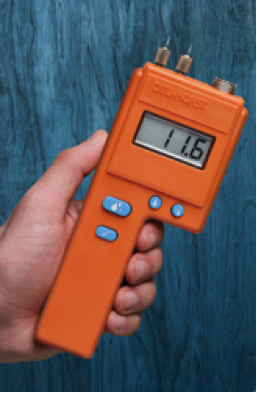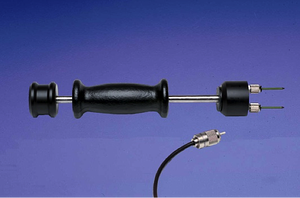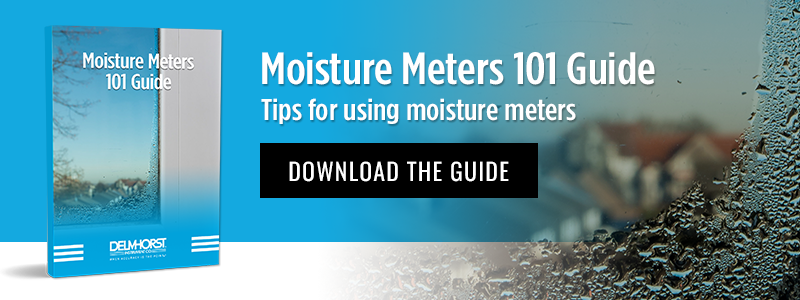No matter how effectively you work to lay a wood floor, all of your efforts could be for nothing if you don’t consider the floor’s moisture content (%MC). For wood products, slight changes in moisture content can significantly affect the machining, gluing, finishing, surface appearance, and strength of the wood.
It’s for this reason that flooring installers and contractors should understand the underlying properties of moisture content and how the different types of moisture meter on the market can help their projects.
Here, we’ll go over why measuring moisture content is important, how pin-type moisture meters work, and the best practices for using these types of meters.
Why Measure Moisture in Wood?
In a nutshell, moisture content compares the weight of the water within a piece of wood against its oven-dry weight. In a perfect world, all moisture content testing would be completed by an "oven test" where a piece of wood is weighed before being placed into an oven at 212 degrees Fahrenheit (100 ˚C) for around 24 hours.
However, for professionals working on a job site, this isn't possible. And this inability has led to the emergence of pin-type moisture meters.
How Pin-Type Moisture Meters Work
Pin-type moisture meters function by measuring the electrical resistance between two electrodes. When moisture is present within the wood, electricity flows more easily. Conversely, wood that is becoming dryer will resist electrical flow. This resistance is measured in ohms and then converted to a reading expressed as X% moisture content. Readings are obtained by inserting pins into various depths or areas of flooring and sub-flooring.
 One of the advantages of using a pin-type moisture meter with insulated contact pins is that they provide the best means for identifying the precise location of moisture in sub-floors or kiln-dried lumber. This is because the pins are only able to read moisture levels at their un-insulated pin tips. By driving the pins into the floor — and even through to the sub-floor — to different depths, moisture levels are read each specific penetration level.
One of the advantages of using a pin-type moisture meter with insulated contact pins is that they provide the best means for identifying the precise location of moisture in sub-floors or kiln-dried lumber. This is because the pins are only able to read moisture levels at their un-insulated pin tips. By driving the pins into the floor — and even through to the sub-floor — to different depths, moisture levels are read each specific penetration level.
A popular pin-type meter among flooring contractors, woodworkers, furniture manufacturers, Quality Control inspectors, and small lumber mills is the Delmhorst J-2000 Pin Type Moisture Meter. The durable digital handheld device manages to keep up with constantly changing job conditions. With built-in wood species correction and temperature correction capabilities, the J-2000 is an extremely versatile tool for a great value.
Some conditions, such as wood thickness, wood species and multiple layers are particularly difficult to penetrate with standard contact pins. Using a Slide Hammer Electrode like the one pictured below allows easy pin penetration in hardwood floors.
Best Practices for Pin-Type Meters

In order to obtain the most accurate results, here are a few tricks to simplify the process:
- Line up the two pins with the longitudinal axis of the wood. In other words, the pins should be aligned with the grain as opposed to against it.
- Using a pin type meter with insulated pins is most effective in determining moisture gradient (the difference between shell and core moisture content).
- When using non-insulated pins, make sure the surface of the wood is dry. If wet, you'll get moisture readings that are skewed to the surface conditions.
- Choose a pin-type moisture meter that features simple controls and a display that is easy to read. Also, pick a model that is calibrated to Douglas Fir — the standard species used by the wood science industry.
- If you’re testing a variety of species, look for a moisture meter that has built-in species corrections to make your job easier such as the RDM-3.
For more information on choosing the best moisture meter for your flooring needs, call 877-DELMHORST (877-335-6467).

Comments